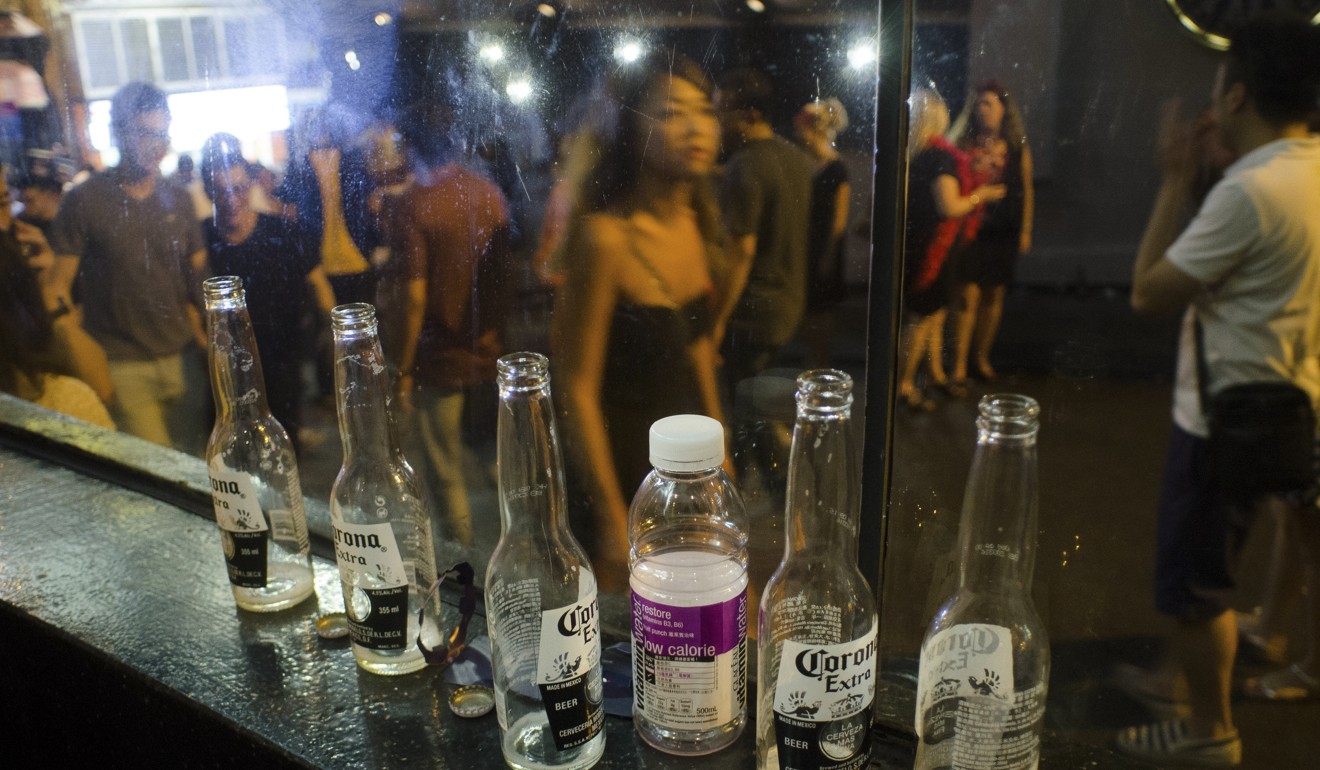
Hongkongers’ growing love of booze could create ‘obesity tsunami’
More people will show signs of a number of chronic diseases including diabetes, cardiovascular disease and cancer, warns academic
A worrying trend of Hongkongers consuming more alcohol has added to the problem of obesity, which will tip the city’s already overburdened public health care system over the brink in the next decade, hitting society like a “tsunami”, warns an academic.
But two public heath experts say an unhealthy diet, such as consuming excessive sugar, and a lack of exercise are still the major factors contributing to obesity. They called for the government to introduce wide-ranging changes, such as a sugar tax and enhanced health awareness, to help Hongkongers get rid of unhealthy lifestyle habits.
Their remarks came after a citywide health survey by the government revealed that half of Hongkongers aged 15 and above were either overweight or obese, and that the number of alcohol drinkers had doubled over the past decade.
“The urgency of the situation can be likened to us being threatened by a tsunami that will hit us real hard,” says Juliana Chan Chung-ngor, director of the Hong Kong Institute of Diabetes and Obesity under the Chinese University of Hong Kong.
Confessions of a Hong Kong underage drinker: vodka, jello shots, heavy make-up and a fake ID – after all, she’s only 14
The urgency of the situation can be likened to us being threatened by a tsunami that will hit us real hard
Chan warns that as a result of these health problems the city’s workforce would be reduced because an increasing number of people would show signs of various chronic diseases, such as diabetes, cardiovascular disease and different types of cancer.
“The high rates of high blood cholesterol, high blood pressure and obesity in these young people mean in 10 to 15 years, we will see an epidemic of young to middle aged people coming down with these fatal and disabling illnesses in the prime of their lives.”
The study of more than 12,000 people was conducted between December 2014 and August 2016.
Compared with the findings of the last large-scale health survey of more than 7,000 people 10 years ago, this latest one found that the number of people with weight problems increased from 2.25 million to 2.97 million while those with high cholesterol rose from 1.8 million to 2.9 million.

The data also showed that 61.4 per cent of respondents admitted to being drinkers, the opposite of 10 years ago when 61.6 per cent claimed to be non-drinkers.
Daniel Ho Sai-yin, an associate professor at the University of Hong Kong’s School of Public Health, points out that consuming more alcohol can lead to obesity. He further elaborates that a gram of alcohol is equal to seven calories, meaning that drinking a 500ml beer is similar to eating a bowl of rice.
Since 2008, wine and liquor with an alcoholic strength of no more than 30 per cent have been exempted from excise duties, according to the Department of Health. From 2009 to 2016, alcohol consumption per capita in Hong Kong increased from 2.6 litres to 2.86 litres.
Even one alcoholic drink a day can increase risk of cancer, study finds

A department spokesman said a variety of factors had affected alcohol consumption patterns, and the tax exemption could be one of them.
The government has proposed to amend the law to regulate the sale and supply of intoxicating liquor to persons under 18.
Chan says the overall obesity situation has continued to worsen in Hong Kong due to poor dietary practices and lack of exercise, partly because of a lack of health awareness within the community.
Five reasons why hangovers get worse as you get older – and what you can do to reduce the suffering
She suggests the government enhance team-based health promotion in the community, such as by allocating more resources to schools to hire nurses, nutritionists or social workers to help children learn and adopt a healthy lifestyle.
Citing Britain as an example, both Ho and Chan suggest introducing a sugar tax as one of the solutions, as it is the most direct way to influence people’s eating habits.
This April, Britain will implement the sugar tax across the country as part of its obesity reduction push.

